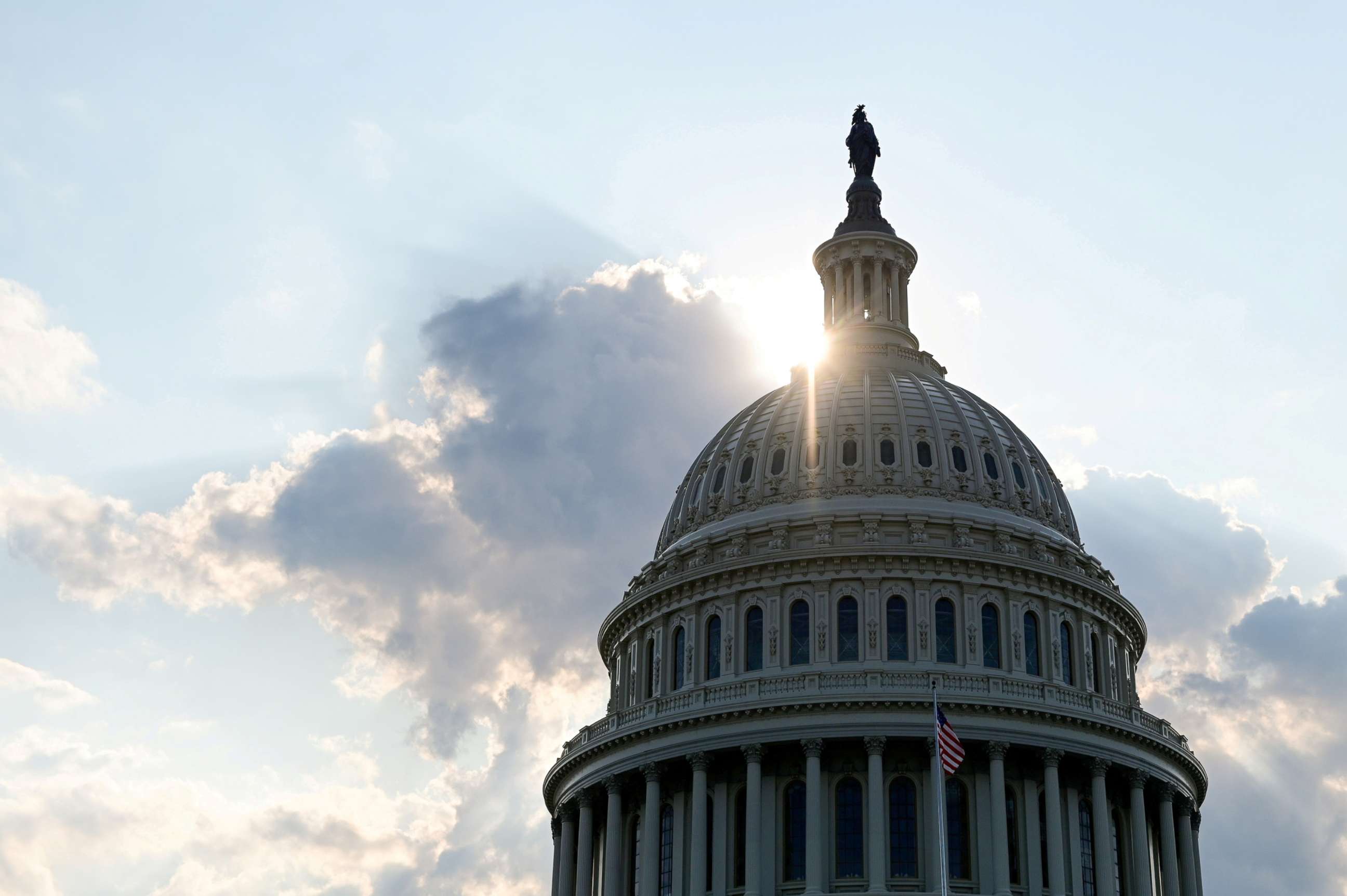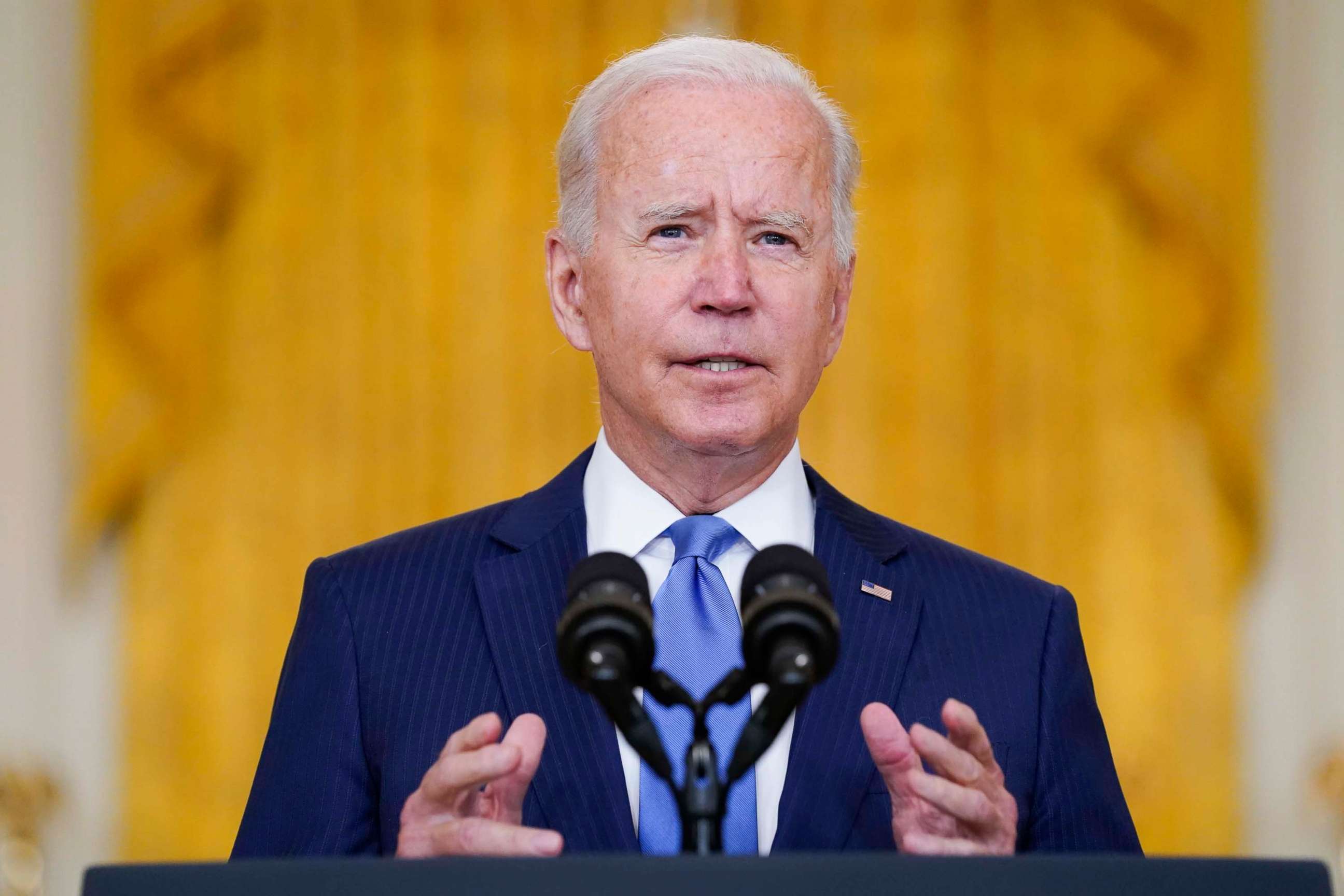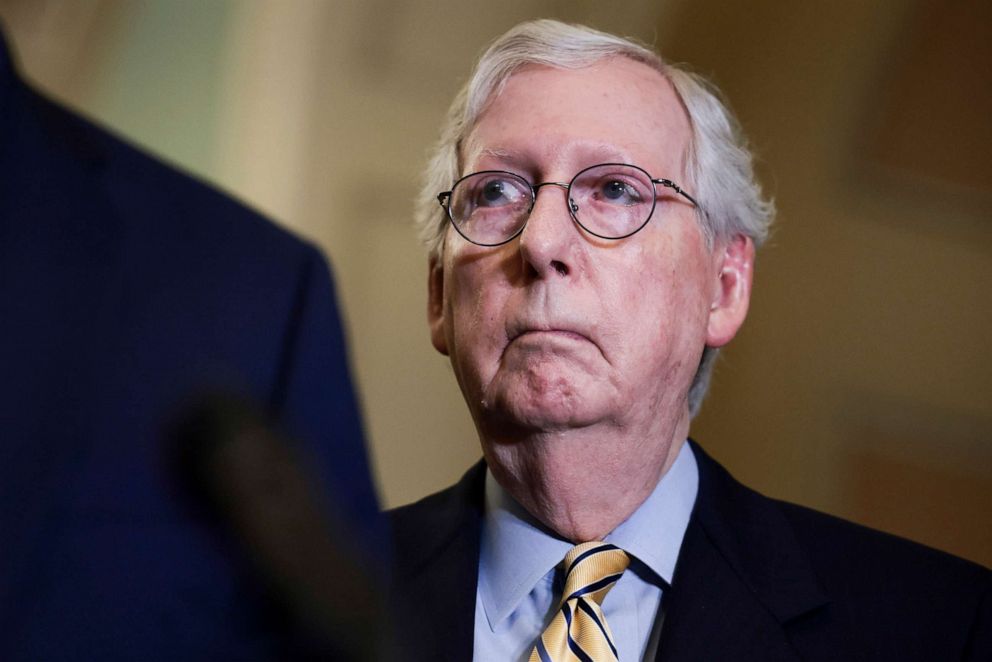Shrinking Biden agenda collides with higher stakes: The Note
Weeks of wrangling has left most of their agenda no closer to becoming reality.
The TAKE with Rick Klein
Trade-offs are typical at this stage of a presidency -- and, in theory, represent the kinds of deals President Joe Biden has longed to cut.
But with House and Senate Democratic leaders huddling with Biden at the White House Wednesday, they confront a strange phenomenon in time for the start of fall. Weeks of wrangling has left most of their governing agenda no closer to becoming reality, even as harsh deadlines draw closer and significant items go by the wayside.
A combination of parliamentary rules and simple math have already blocked realistic paths for passing voting-rights and immigration reform. As for what might still become law, the mammoth price tags that progressives previously saw as a negotiating floor are being whittled down further without necessarily picking up additional votes.

House leaders now recognize that as reality. Next Monday's vote on the bipartisan $1.2 trillion infrastructure package that's already passed the Senate is set and not moving, to the dismay of many on the left.
That breaks the longstanding pledge to progressives to only approve that bill if it's in "tandem" with the far larger, Democrat-only proposal. Biden himself infamously said "I'm not signing it" if the bipartisan bill doesn't have a bigger cousin he could also make law, only to walk that back.

For all that give, deadlines over funding the government at the end of September and the debt ceiling at the end of October have further complicated Democrats' plans. The stakes of complicated and overlapping negotiations have risen rapidly, even as their list of goals has continued to shrink.
Democrats can rightly complain that they're getting little to no help in governing from Republicans, who are now holding fast to a commitment to not provide votes to raise the debt limit.
The upshot is that Democrats are, once again, negotiating with themselves. That dynamic could make losing sting even more.
The RUNDOWN with Averi Harper
Democratic leaders in both chambers of Congress are joining the chorus of voices calling out the conditions at the southern border.
Senate Majority Leader Chuck Schumer, D-N.Y., told reporters he is calling on the president to halt expulsions of Haitian migrants and end the use of a holdover Trump administration border policy that allows asylum seekers to be turned away without having their claims heard, citing the threat of the coronavirus pandemic.
"I urge president Biden to put a stop to these expulsions and to end this Title 42 policy at our southern border," Schumer said. "We cannot continue these hateful and xenophobic Trump policies that disregard our refugee laws."

Speaker Nancy Pelosi issued a statement Monday night outlining what she called "reports of mistreatment" of Haitian migrants in Del Rio, Texas.
"All migrants seeking asylum must be treated in accordance with the law and with basic decency," said Pelosi. "Any acts of aggression or violence cannot be tolerated and must be investigated."
White House press secretary Jen Psaki called the images of border agents with migrants at the river "horrific" and said the Department of Homeland Security would pursue an investigation, but that only addresses one aspect of Democrats' concerns as it relates to Haitian migrants at the border. The administration remains steadfast in its plan to return migrants to Haiti and continued usage of Title 42 to expel migrants before they make asylum claims.
The TIP with Meg Cunningham
The Republican Party is continuing to splinter as primary season heats up and GOP Senate candidates seek to differentiate themselves from their competitors.
Ex-Missouri governor and Senate candidate Eric Greitens said Monday that he would not vote for Kentucky Sen. Mitch McConnell to be the Senate GOP leader should he be elected in 2022. Greitens said that McConnell is "actively engaged in working against President Trump and the MAGA movement." Former President Donald Trump has yet to offer an endorsement in the Missouri Senate race and the Wall Street Journal reported over the weekend that Trump has been discussing backing someone other than McConnell for GOP Senate leader after the midterms.
"I don't have any reaction to that," McConnell told reporters Tuesday in the Capitol.

ABC News reached out to GOP Senate campaigns that have already nabbed endorsements from the former president, but only received one response. North Carolina Rep. Ted Budd's Senate campaign: that their primary focus is winning the campaign to make sure that the GOP leader is majority leader, not minority leader.
THE PLAYLIST
ABC News' "Start Here" podcast. Wednesday morning's episode begins with an explainer on the lawsuits testing Texas' abortion ban and ABC News Legal Analyst Kate Shaw tells us whether they have any merit. Then, ABC News' correspondent Kenneth Moton on the backlash from new video of U.S. Border Patrol agents chasing migrants on horseback. And, in an "America Strong" special, we talk to a firefighter putting his own life on the line in the face of climate-related disasters. http://apple.co/2HPocUL
WHAT YOU NEED TO KNOW TODAY
Download the ABC News app and select "The Note" as an item of interest to receive the day's sharpest political analysis.
The Note is a daily ABC News feature that highlights the key political moments of the day ahead. Please check back tomorrow for the latest.




